Iran, Russia Hold Conference To Boost Trade Ties Amid Western Sanctions
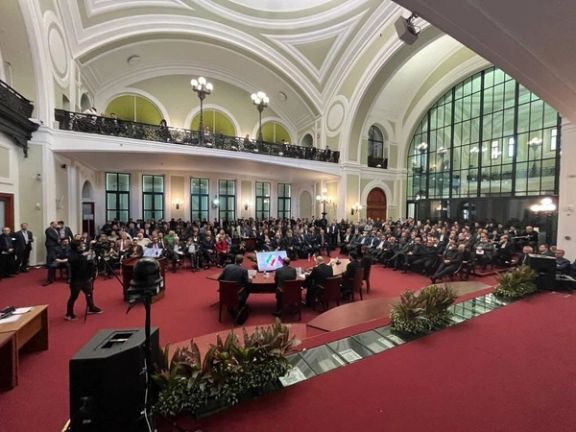
Iran and Russia held a trade conference Thursday in Moscow with representatives of over 370 businesses present.

Iran and Russia held a trade conference Thursday in Moscow with representatives of over 370 businesses present.
Kazem Jalali, Iran’s ambassador in Moscow, Alireza Peyman-Pak, head of Iran’s Trade Promotion Organization, and Sergeĭ Katyrin, President of Russia’s Chamber of Commerce and Industry, all spoke on potential for boosting economic relations. The Iran-Russia Trade Convention was held in the conference hall of the Russian Chamber of Commerce and Industry in Moscow.
Jalali told Iranian state broadcasting that that over 300 Russian businesspeople were present, with others from across Russia following the conference online. Peyman-Pak said Iran was willing to increase trade to $10 billion in the short term. Trade reached $3.3 to 4 billion in 2021, with Russian exports outweighing Iran’s by around three to one.
Trade between Russia and Iran was rising even before the United States imposed ‘maximum pressure’ sanctions on Iran in 2018, slashing Iran’s business links with western Europe, and may increase further with US and western European sanctions against Russia over the Ukraine crisis.
Representatives of 70 Iranian and 300 Russian companies in nine sectors, including industry, technology, petrochemicals, medicine, and food, held meetings at Thursday’s conference. Over 50 of the Iranian participants were from the private sector, including companies dealing with cement, aquaculture, clothing, medical equipment, and pharmaceuticals. The Iranian delegation, which arrived in Moscow Monday, is reportedly the biggest ever to visit Russia.
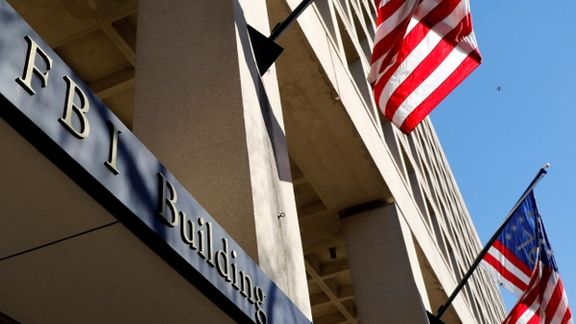
Two men, one with an Iranian name were arrested in Washington on Wednesday for posing as federal agents and giving expensive gifts to Secret Service personnel.
There was no reference in the media to the nationality status of the suspects, whether they were American citizens or legal residents, nor any reference to their possible overseas connections.
One of the men was identified as Arian Taherzadeh, an Iranian-sounding name, while the second individual named Haidar Ali could be of a different Middle Eastern or Southwest Asian origin.
Federal Bureau of Investigation (FBI) agents stormed an apartment building where Taherzadeh was said to have several apartments, offering free of rent to Secret Service agents he had befriended, posing as a Homeland Security undercover investigator.
At least one Secret Service agent assigned to First Lady Jill Biden’s detail was a target of the suspects, who gave or offered expensive gifts to federal agents for yet unexplained reasons.
The conspiracy began in February 2020, according to the Washington Post. This coincides with the killing of Iranian Revolutionary Guard general Qasem Soleimani in a US airstrike in Baghdad in January 2020, for which Iran has vowed retaliation against former American officials such as Secretary of State Mike Pompeo. Whether the suspects have any connection with Iran could be speculative at this point before US authorities release more information on the case.
On January 6, 2021 the commander of Iran's Qods (Quds) Force Esmail Ghaani was quoted by Iranian media as saying that "revenge [for Soleimani] has started from day one and you will not have peace even in your own homes...and it cannot be ruled out that we take revenge in your own home."
FBI documents submitted to the US District Court show anti-terrorism agents are involved in the case, requesting search warrants for the suspects’ social media accounts and signing the criminal complaint.
Dozens of federal agents were seen in and around the apartment building on Wednesday, some carrying seized evidence presumably from the apartments belonging to Taherzadeh.
The suspects were fully set up to impersonate federal agents with an official-looking SUV and Tehrazadeh offered his targets gifts, such as weapons and generators, use of vehicles and apartments.
The complaint filed with the court said that four Secret Service personnel were placed on administrative leave on April 4. Both suspects are scheduled to appear in US District Court on Thursday and remain in custody.
The investigation began March 14, according to media reports, when accidently the men were brought to the attention of a US Postal Service inspector visiting the building in question. Residents identified the suspects as federal agents to the inspector, which led to the discovery that they were impersonators.

Twitter has moved to limit the accounts of governments that restrict open access to information for their citizens.
Twitter said it is applying new rules -- which came into force on Tuesday -- to any country that limits access to online services while engaging in interstate warfare. The popular social media platform initially only limited more than 300 official Russian government accounts, including those of President Vladimir Putin, official ministry and embassy profiles, as well as the accounts of high-ranking Russian official accounts.
Head of Site Integrity at Twitter Yoel Roth said, “When a government that's engaged in armed conflict is blocking or limiting access to online services within their country, while they themselves continue to use those same services to advance their positions and viewpoints - that creates a harmful information imbalance”.
Twitter is not banned in Russia but has been severely slowed down to the point of inoperability. The platform is completely banned in Iran while there are many Iranian officials and organizations that use it frequently.
So far, there has been no new move by Twitter to restrict access to Islamic Republic officials. Iranian users have been tweeting if the new policies would impact Supreme Leader Ali Khamenei who has multiple accounts on Twitter.
In the aftermath of Iran’s controversial 2009 presidential election, the government blocked Twitter fearing protests being organized.
In January, Twitter blocked an account linked to Supreme Leader Ali Khamenei after it published an animated video depicting the assassination of former US president Donald Trump.
In February, Twitter and Facebook suspended pages and profiles of an Iranian disinformation unit that was targeting nationalist and ultra-religious Jews in Israel.
Iran has restricted access to the internet for two decades, including popular social media platforms such as Facebook and You Tube for the past ten years. An overwhelming majority of Iranians routinely use circumvention software to go around government blockages.
After hardliners captured both the parliament and the presidency, they have proposed new legislation to further restrict access to the Internet and particularly to foreign-based social media platforms.
Currently only Instagram is accessible in Iran and it has become a major platform for commerce, keeping tens of thousands of small businesses afloat amid a serious economic crisis.
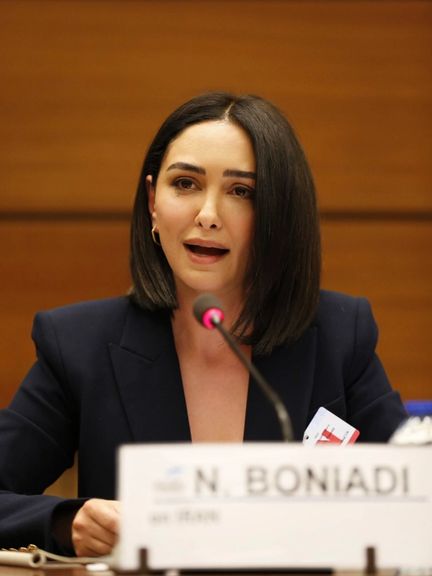
British-Iranian actress and human rights activist Nazanin Boniadi has asked the United Nations why Iran is a member of its Commission on the Status of Women.
"If we agree it is a farce for Russia to sit on the Human Rights Council, how can the Islamic Republic of Iran − a regime that subjugates women − be elected to the UN body for gender equality and empowerment of women?" she said Tuesday at the 14th Geneva Summit for Human Rights and Democracy. Members of the Commission on the Status of Women are elected from all continents for four-year terms. Current members include Afghanistan, Israel, Saudi Arabia, and the United States.
Boniadi, who left Iran in 1980 as a baby when her parents became political refugees, cited Narges Mohammadi, who last year refused to answer a court summons, and Zahra Kazemi, a dual Iranian-Canadian photojournalist who died in Tehran’s Evin prison in 2003. Boniadi said that support for UN resolutions over such cases was “the least people of Iran expect from the free world,” and welcomed the UN Human Rights Council extending the mandate of the Special Rapporteur on Human Rights in Iran.
“The people of Iran are being denied their basic human rights,” Boniadi said. “Since the 1979 revolution, the denial of fair trials and due process have been symptoms of the Iranian authorities’ disdain for the rule of law and those defending it, as well as tools for the monopolization of power and the persecution of those who challenge it.”
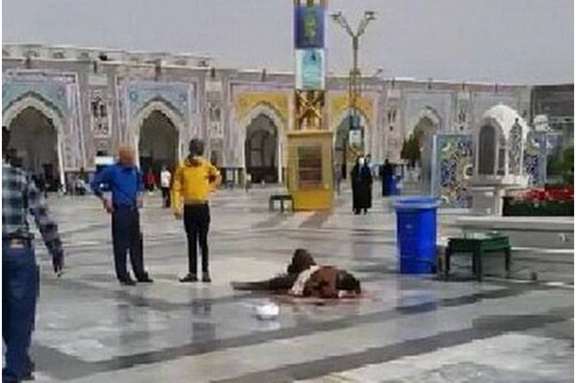
Iranian President Ebrahim Raisi has alleged that Sunni 'Takfiris' were behind the stabbing of three clerics in the holy city of Mashhad on Tuesday.
"This sad incident which was perpetrated by one of the deviant agents of American [-made] Takfiri groups will cause evermore unity and solidarity of those who love Islam and the Islamic Iran and will tarnish deviant groups," Raisi said in a statement Wednesday.
Iranian officials use Takfiri as a vague umbrella term to refer to Sunni dissident groups and individuals in Iran and abroad, alleging that they are organized by western powers and Wahhabis.
A man who officials said Tuesday was a "foreign national" stabbed three clerics in the north-eastern city of Mashhad in Khorasan-e Razavi Province. One of the victims has died and two others who were seriously wounded have been hospitalized.
On Wednesday, Tasnim news agency close to the Revolutionary Guard said the suspect is Abdullatif Moradi, an Afghan of Uzbek ethnicity who entered Iran illegally through Pakistan one year ago. The report also confirmed that six other suspects are under arrest for collaborating with the suspect. Two of the detainees are Moradi’s brothers, Tasnim said and added that they were Takfiri extremists who believed the blood of Shiites must be spilled.
Raisi tasked the intelligence ministry with investigating the rare incident which happened on the third day of the holy month of Ramadan in the courtyard of the shrine of Imam Reza, the eighth imam of Shiites, despite the usual heavy security measures in the compound. Such measures would normally prevent anyone smuggling a knife into the massive shrine complex.

Parliament Speaker Mohammad-Bagher Ghalibaf in parliament on Wednesday condemned the attack and indirectly confirmed that the assailant was of Afghan nationality.
"This incident should not destroy friendship and brotherhood between nations," he said, adding that many Afghans, presumably Afghan Shiites, had fought alongside Iranians during the Iran-Iraq War (1980-1988) and in Syria in the past 10 years.
Mashhad has a very large Afghan community most of whom are Sunnis. Afghans mostly live in poverty-stricken neighborhoods of the city including where the assailant reportedly lived and the three clerics engaged in Shiite religious activities, the deputy of the Islamic Propaganda Organization said.
Millions of Afghans have lived in Iran as refugees or economic migrants for many years and their numbers have been increasing considerably since the Taliban takeover of the government in Kabul last year. Officials say as many as 5,000 Afghans enter Iran on a daily basis through official borders now while a large number also enter illegally whose numbers are not known.
The Imam Reza Shrine assailant's motive for the attack is not clear. Immediately after the incident some social media users said they suspected a connection with the Saturday shooting of two Sunni clerics in front of aSunni seminary mosque in Gonbad Kavus. The two incidents could have been meant to cause strife between Shiites and the minority Sunnis in the country, they said.
The majority of people in Gonbad Kavus, the second-largest city of the northern province of Golestan, are Sunni Turkmens.
Deputy governor of Golestan Province, Mehdi Dehrouyeh, on Monday said a suspect was being interrogated in connection with the gun attack on Sunni clerics, adding that it was highly likely that there were "personal reasons" for it.
The ultra-hardliner Kayhan newspaper on Wednesday said the incidents in Gonbad Kavus and Mashhad could be part of a "plot" to cause Shiite-Sunni sectarianism.
"It appears that the incident in Mashhad yesterday was part of a security puzzle designed by conspirators to create a national security crisis and sedition through causing a division between the Iranian nation and foreign nationals and discord between Shiites and Sunnis," Kayhan wrote.
Iranian officials often refer to Afghan refugees and economic migrants living in Iran as "foreign nationals".
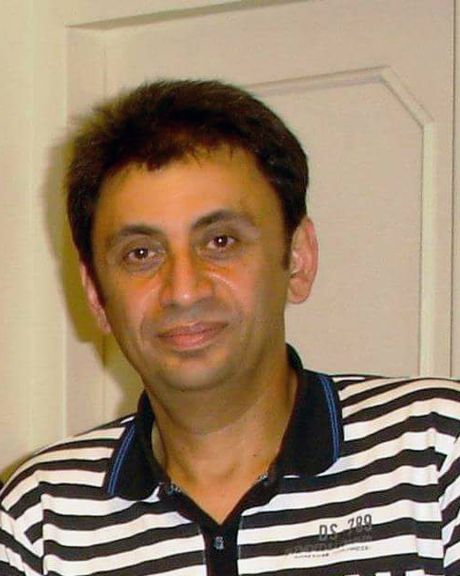
The Iranian-American wife of Shahab Dalili who has been detained in Iran for six years, has asked the Biden administration to secure the release of her husband.
Nahid Dalili told NBC News on Tuesday that she fears Washington and Tehran are close to a prisoner swap deal but her husband will be left behind.
Fifty-nine-year-old Dalili, who was arrested in 2016 while visiting Tehran for his father’s funeral charged with "aiding and abetting" the US, is a legal permanent resident, but not a citizen.
Nahid said she hadn’t spoken publicly about her husband’s case out of fear of jeopardizing his possible release, but when she heard US officials in the Biden administration refer to “four” Americans imprisoned in Iran, she decided in March to break her silence.
“I want them to hear me. They can’t say they didn’t know about this,” she said. “The Biden administration shouldn’t leave Shahab behind. He is a permanent legal resident, and all of his family are citizens.”
British Iranian Nazanin Zaghari-Ratcliffe and Anoosheh Ashoori were freed in March after the UK paid a four-decade-old £400m ($522 million) debt to Iran.
Iran is still holding several other western dual nationals including American-Iranians Siyamak Namazi and his elderly father Bagher, American-Iranian businessman Emad Sharghi, and German-Iranian rights activist Nahid Taghavi.